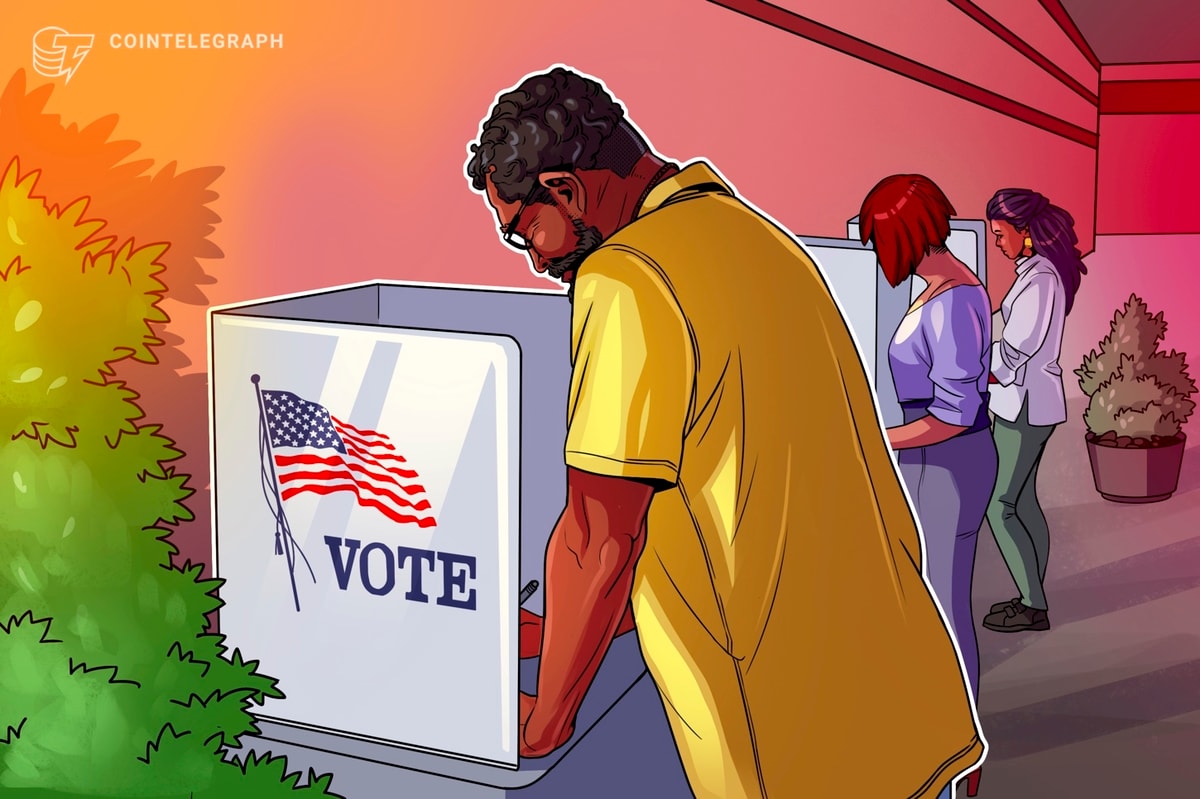Yassamin Ansari, a Democrat running to represent Arizona’s 3rd Congressional District in the United States House of Representatives, has won a recount against her fellow party member Raquel Terán by only 39 votes.
According to an Aug. 20 report from the Associated Press, Arizona officials announced that Ansari was the winner of a recount between Democratic candidates in a state primary election. After primary results were tabulated starting on July 30, election officials found Ansari was leading by less than 0.5% of the total votes cast, requiring a recount under state law.
The recount showed Ansari had 19,087 votes, while 19,048 people voted for Terán. Ansari announced her victory in an Aug. 20 X post, as Terán said she had congratulated her opponent on “her election to be our future congresswoman.” She will face off against Republican Jeff Zink in the November election.
Backed by crypto PAC
The Protect Progress super political action committee (PAC) — an affiliate of Fairshake and Defend American Jobs — spent more than $1.3 million on media buys to support Ansari in the primary. The super PAC has funded millions of dollars worth of attack ads and media support for congressional candidates in several state primaries for the 2024 election season.
“We were proud to support a leader who will come to Congress and work across the aisle and embrace innovation to grow our economy,” a Fairshake spokesperson told Cointelegraph.
Ansari was one of three candidates Fairshake and its affiliates supported in Arizona, the only primary victory, and the one who received the most financial support from the PAC in the state.
Protect Progress spent more than $400,000 on a media buy for Democrat Andrei Cherny in Arizona’s 1st Congressional District. Cherny lost to Amish Shah.
The Defend American Jobs disseminated roughly $600,000 in a media buy to support Republican Blake Masters in Arizona’s 8th Congressional District. Masters lost his primary to Abraham Hamadeh.
Before the primary, California Representative Linda Sánchez reportedly called the crypto super PAC’s support of Ansari a means to “buy a seat in Congress” and “silence the voices” of certain voters. At the time of publication, she had not commented publicly on the recount results.
Sights on US Senate?
With most US state primaries completed, Fairshake seems to have turned its attention to the general election in November. The Super PAC reportedly committed roughly $12 million to support Republican Bernie Moreno over Democrat Sherrod Brown in Ohio’s US Senate race. Brown, the chair of the Senate Banking Committee, has been vocal about his opposition to certain pro-crypto legislation in Congress.
On Aug. 14, Senate Majority Leader Chuck Schumer and many Democratic lawmakers and candidates spoke at a virtual town hall meeting to discuss the party’s position and future on digital assets. Senator Schumer said one of his goals was to pass pro-crypto legislation by the end of 2024, before any potential change in government leadership.
Related: Crypto Super PAC spends $2M on attack ad targeting NY lawmaker
Democratic supporters, lawmakers, and donors are gathering in Chicago for the party’s national convention, in which Vice President Kamala Harris will publicly accept the nomination for president. The Harris campaign has been largely silent on digital assets and blockchain issues, only releasing some of the pillars of its economic agenda on Aug. 16.
The 2024 election season has marked one of the first times in the US that major party candidates have taken a position on crypto. Republican nominee Donald Trump has issued several positive statements about non-fungible tokens, Bitcoin (BTC) mining, and custodying assets during his campaign.
Magazine: Crypto voters are already disrupting the 2024 election — and it’s set to continue











